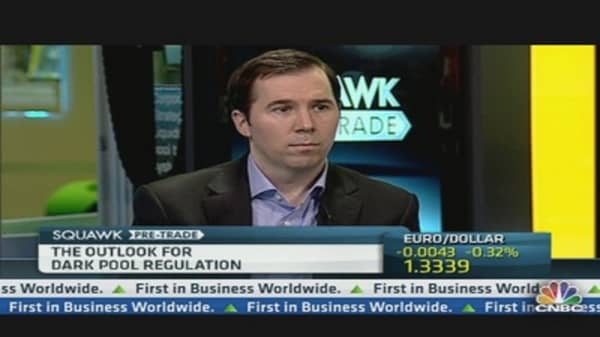Naturally dark pools have become popular. Roughly 40 Dark Pools are in operation in the United States and account for more than a quarter of total trades.
But to be successful a dark pool needs liquidity. After all, trading stock requires participants…anonymous or not. Which has led some to wonder: Are dark pools giving some high volume participants … like high frequency traders…enticements to swim in their waters? Are dark pool broker-operators giving themselves an advantage? What are they telling or promising their customers? (For a good look at all the questions and concerns surrounding dark pools, check Wall Street Journal reporter Scott Patterson's book called, well, "Dark Pools." Scott has done some writing for us as well.)
Now regulators are beginning to look into the murk. The SEC and Financial Industry Regulatory Authority indicated recently they will be looking at dark pools to make sure the broker-operators are being honest about what is seen and not seen in trades. Also, criminal investigators recently indicated they are studying dark pools to see if they are being used to help cover up insider trades.
Why is this a good thing? Well, besides the direct fairness and criminality questions, dark pools are part of the whole "rise of the machines" fear, tweaked in a big way by the Flash Crash, that seems to have cast a pall over retail investing. Market volume over the past few years has drifted off, leading to a lot of hand wringing by retail brokerages and, frankly, us media types. Sure, a bad economy and lousy market share blame. But the pervasive feeling that HAL or Skynet or Robbie the Robot are playing in the casino leads many of us to stay away from the casino as well.
The latest rally may be turning that around a bit. Retail money seems to be drifting back in. Greed can sometimes outweigh fear. So can knowledge. Maybe casting a little light into the dark pools can help as well.





